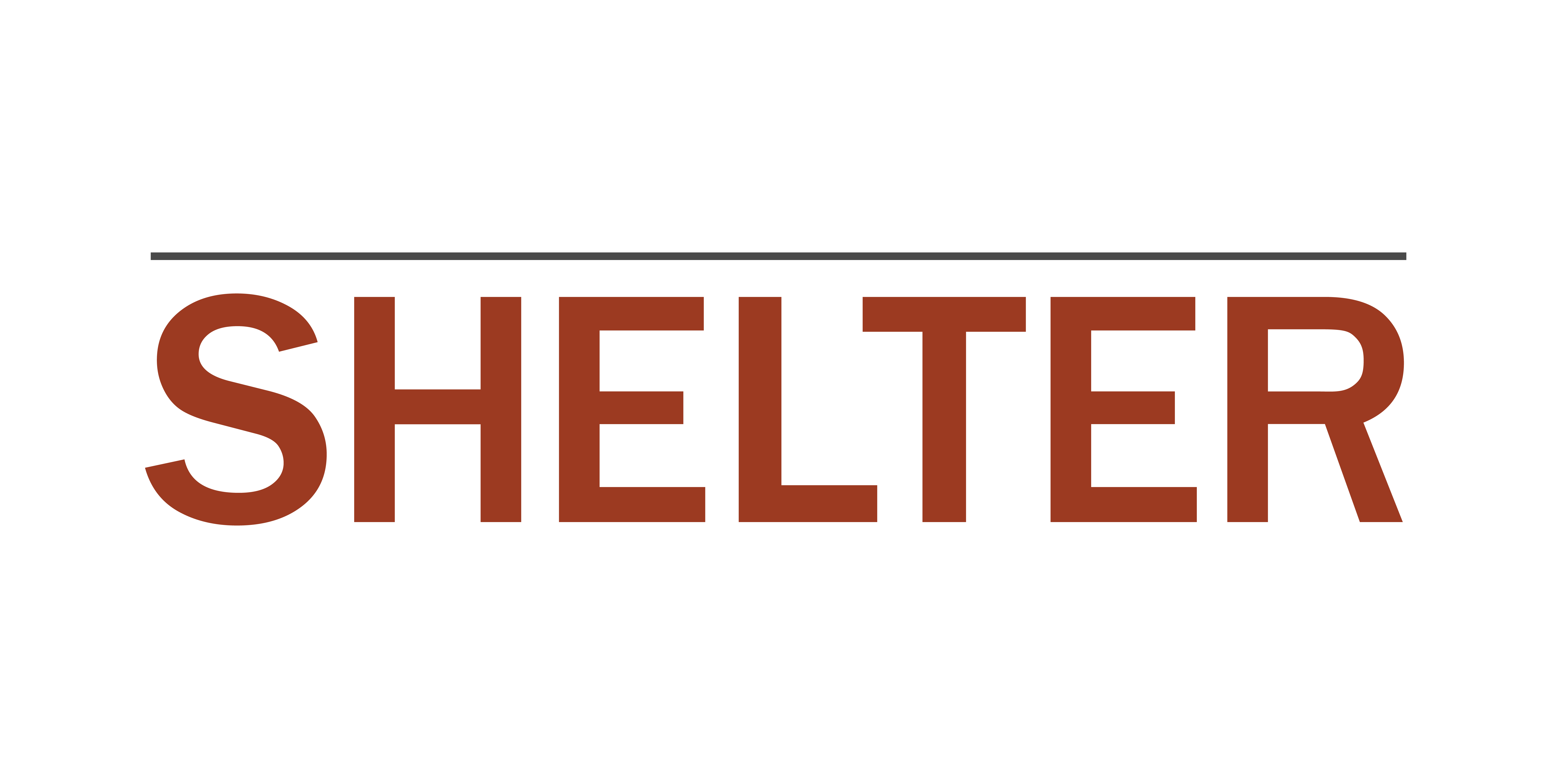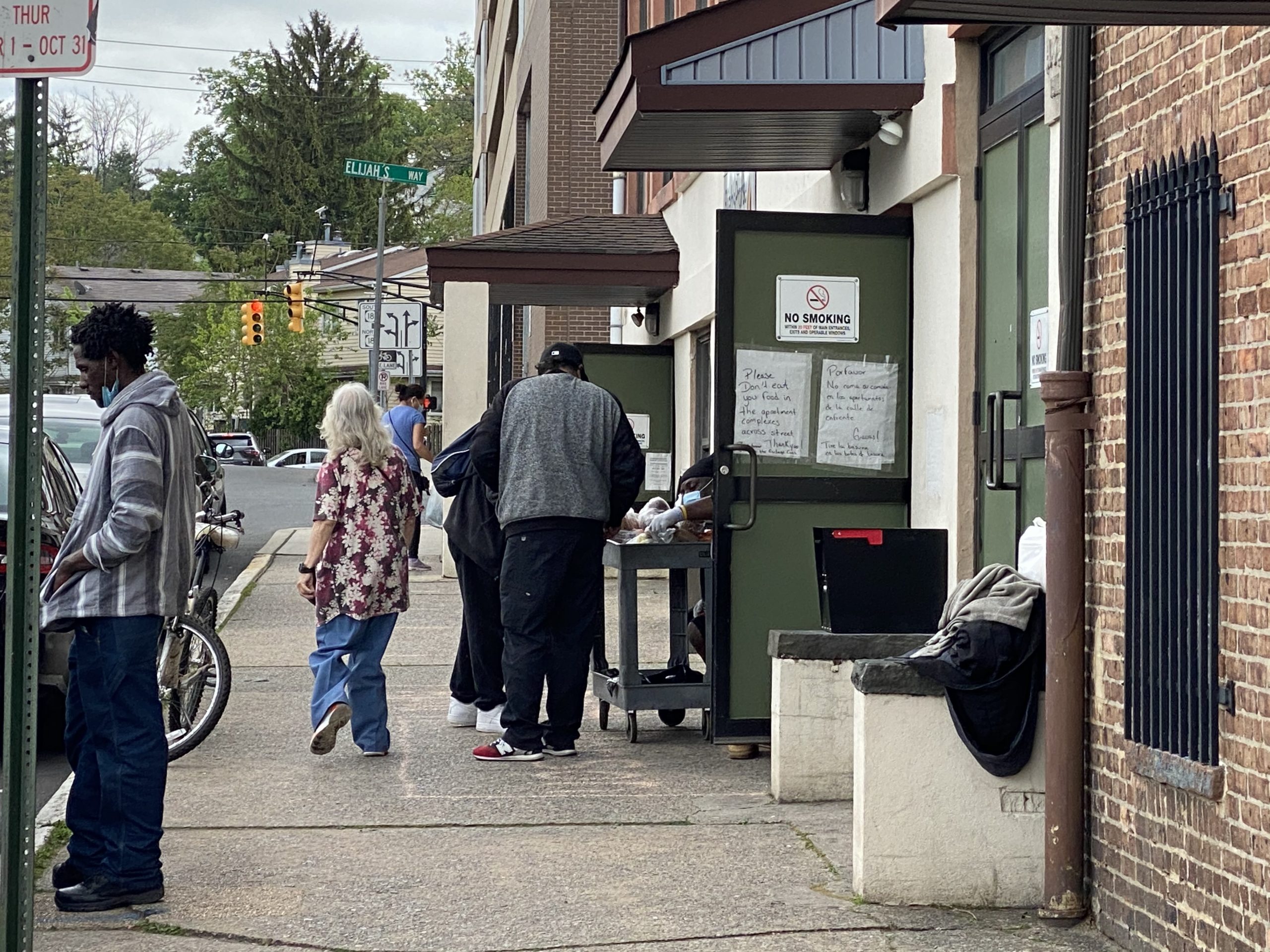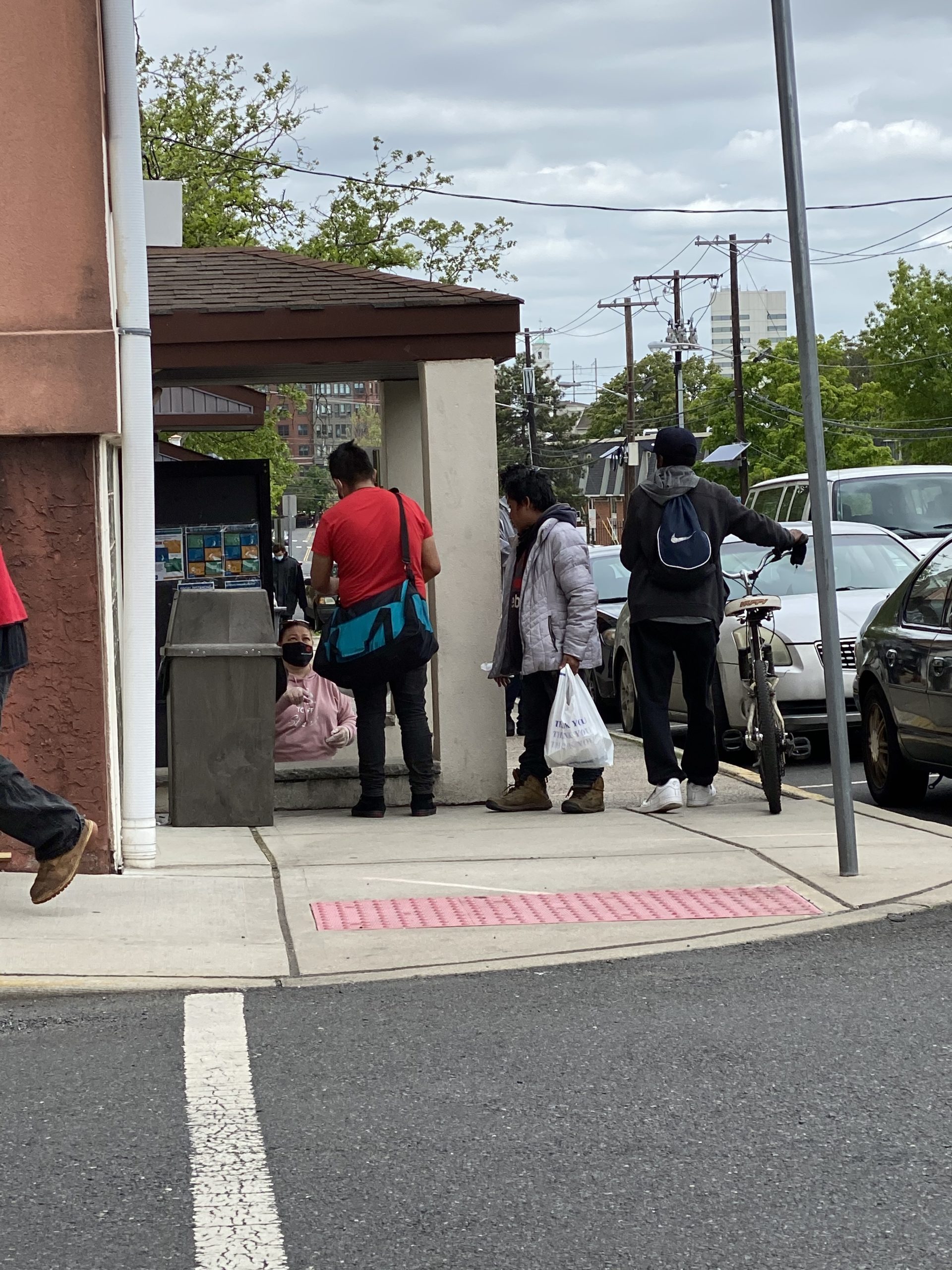NBTS & Partners’ SHELTER Project Secures Luce Grant In Response to Pandemic
June 11, 2020
Luce Foundation Funds New Brunswick Theological Seminary Collaboration to Respond to COVID-19 Pandemic and its Effects
Thanks to generous support from the Henry Luce Foundation, New Brunswick Theological Seminary (NBTS), in partnership with Reformed Church of Highland Park Affordable Housing Corporation (RCHP-AHC) and Rutgers University-New Brunswick, has launched a project to address the problem of housing insecurity during the COVID-19 pandemic. This new initiative offers a rapid response to a pressing question for some of the most vulnerable people in the wider community: In an age of pandemic, what does it mean to shelter in place when you have no shelter?

Through its Theology Program and its commitment to supporting its partners’ responses to COVID -19, the Luce Foundation has awarded $150,000 to NBTS for the immediate launch of the SHELTER project. (Website: shelternj.org). Seventy-five percent of the awarded funds will be directed to RCHP-AHC to rapidly secure housing and provide ongoing wrap-around services for families and individuals whose housing and other basic needs, such as the purchasing of food and medicine, have been impacted by the COVID-19 pandemic. These individuals and families are variously experiencing challenges related to undocumented or immigration status, recent release from parole or incarceration, HIV and other medical needs, and other social services needs that make them especially vulnerable during the COVID crisis.

By fostering existing community partnerships and directing funds to support the urgent responses of service providers doing the work of social justice, this project advances the Seminary’s explicit commitments to promote justice in society. Although the current emergency is all too immediate, when the pandemic fades, “shelter” will still be an elusive goal for many; the aim of our partnership is to create a long-term relationship not only with RCHP-AHC but with the individuals and families who are receiving services. The Reverend Seth Kaper-Dale, Executive Director of RCHP-Affordable Housing Corporation expressed excitement for “the potential of this project to help a pandemic be not a moment for further rejection and isolation but rather a moment where we stop, listen, and participate in creating ‘home’ for already susceptible populations.”
The remaining twenty-five percent of the grant funds will be directed to public humanities and public arts projects. Recognizing the ongoing challenges with respect to the broader social, economic, and political conditions that leave people without housing, deny opportunities after incarceration, detain those seeking refuge and safety, and provide inadequate services for those who are ill, this portion of the project aims to consider these conditions affecting our neighbors and promote understanding. Led by Nathan Jérémie-Brink, Feakes Assistant Professor of the History of Global Christianity at NBTS; Colin Jager, Director of the Center for Cultural Analysis and Professor of English at Rutgers; Kristin O’Brassill-Kulfan, Coordinator & Instructor of Public History at Rutgers, and Producing Director Dan Swern of coLAB Arts, this portion of the project will involve masters-level students at New Brunswick Theological Seminary, undergraduates at Rutgers University, and local artistic communities. Project leadership hopes that engagement in this task of finding homes for vulnerable people encourages our institutions and community more broadly to address underlying social refusals of shelter, sanctuary, and dwelling.

The goal of these innovative public engagements is to encourage the seminary and the University to serve and think together, and develop new ways to reimagine our community engagement that enfolds artists and social advocates in the work of this grant. Swern notes that coLAB Arts’ “creative engagement work predicated on a rigorous awareness of community needs and positionality, particularly when considering vulnerable populations,” will help facilitate the creative work of the project’s innovative partnerships “in service of real systems change.”
NBTS President Micah McCreary, PhD remarked that “this project reflects NBTS’s commitment to ‘act justly’ in our response to this pandemic, and foster partnerships that promote critical thinking about the complex economic, socio-psychological, and racial factors that leave people without homes.” He applauded the Luce Foundation’s emergency response funding and the SHELTER project’s “amazing group of researchers, professors, pastors, and community activists committed to provide persons impacted by COVID-19 with safe spaces and needed resources for recovery and survival.”
As NBTS and partner institutions respond to this crisis and the range of needs of those who need a safe place to call home, this project also hopes to listen to our neighbor’s experiences and ensure that our community also makes place for their voices.
“We are grateful to New Brunswick Theological Seminary and the Center for Cultural Analysis at Rutgers University for their willingness to partner with the Henry Luce Foundation’s Theology Program in an initiative that involves rapid responses to the COVID-19 pandemic in a number of U.S. cities and regions,” said Luce Foundation Program Director Jonathan VanAntwerpen. “Driven by the ideas and creativity of our partners, and attentive to local needs and networks, these efforts are taking multiple forms, involving both direct support for community-based organizations and aligned efforts to give voice to the experiences of vulnerable and underrepresented communities during the pandemic.”
###
About the Henry Luce Foundation
The Henry Luce Foundation seeks to enrich public discourse by promoting innovative scholarship, cultivating new leaders, and fostering international understanding. The Foundation advances its mission through grantmaking and leadership programs in the fields of Asia, higher education, religion and theology, art, and public policy.
Established in 1936 by Henry R. Luce, the co-founder and editor-in-chief of Time, Inc., the Foundation’s earliest work honored his parents, missionary educators in China. The Foundation’s programs today reflect the value Mr. Luce placed on learning, leadership, and long-term commitment in philanthropy.
Read more about the Luce Foundation’s Response to COVID-19.
About New Brunswick Theological Seminary
Founded in 1784, NBTS is the oldest seminary in the United States. It is one of two seminaries affiliated with the Reformed Church in America (RCA), and offers an exceptional seminary education, a flexible academic schedule, and a spiritually rich community for students of many Christian denominations and backgrounds. The NBTS mission is to educate persons and strengthen communities for transformational, public ministries in church and society. We fulfill this mission through creative, contextual, and critical engagement with texts, traditions, and practices.
The Seminary offers Master of Arts (M.A.), Master of Divinity (M.Div.), Master of Arts in Theological Studies (M.A.T.S.), and Doctor of Ministry (D.Min.) degrees, as well as Professional Certificates to enhance the work and training of special ministers, church officers, and other Christian leaders. The seminary is located in New Brunswick, NJ, and operates a satellite campus at St. John’s University in Queens, NY. To learn more about New Brunswick Theological Seminary, please visit nbts.edu.
About RCHP-Affordable Housing Corporation
The Reformed Church of Highland Park Affordable Housing Corporation (RCHP-AHC) provides affordable housing, supportive services, and connection to meaningful community to low-income individuals and families in central New Jersey.
RCHP-AHC owns 20 properties in seven different municipalities in central NJ that house diverse low-income tenants, including veterans, women aging out of foster care, developmentally disabled adults, homeless youth, chronically homeless individuals, and others with significant life challenges. We also rent an additional 30 units and serve as a temporary intermediary for families – including refugees and asylum seekers – who would otherwise be unable to secure an apartment rental due to poor (or no) credit history, temporary unemployment, or other factors.
About Rutgers University New Brunswick, the Department of History / Public History Program and the Center for Cultural Analysis
Rutgers University–New Brunswick is the flagship home of Rutgers, The State University of New Jersey. Rutgers is a leading national research university committed to excellence in teaching, innovative research across a broad spectrum of subjects, and service that improves our local, national, and global communities.
The Public History Program within the Rutgers University New Brunswick History Department offers students, faculty, and staff opportunities to participate in public historical engagement through coursework, experiential learning, events, and collaborative projects. Students have the opportunity to engage with current debates around contested histories, work alongside community partners to share historical information with diverse audiences, and to learn more about the myriad methods and fields in which historians work. The program offers an undergraduate Certificate in Public History with exciting course offerings, and an experiential learning Public History Internship program, which connects students with opportunities to work and learn hands-on in the field of public history.
Established in 1986, the Center for Cultural Analysis (CCA) is the leading institute at Rutgers University devoted to advanced interdisciplinary scholarship in the humanities and social sciences. Each year the CCA runs a research seminar that gathers faculty, advanced graduate students, postdoctoral researchers and distinguished visitors for a sustained conversation on a topic of importance to the academy at large. Alongside its main seminar, the CCA supports a series of working groups formed to explore emerging areas of inquiry, and it sponsors public events on problems of general interest that reach across several disciplines. As a member of the Consortium of Humanities Centers and Institutes (CHCI), the CCA is a primary site at the university for international partnerships and multi-institutional projects, enhancing Rutgers’ global reputation as a top-tier research university.
About coLAB Arts
coLAB Arts engages artists, social advocates, and communities to create transformative new work. coLAB Arts facilitates creative conversation through innovative programs and artist infrastructure, connects artists with community partners and mentors, and executes productions that challenge perceptions and inspire action.
coLAB Arts produces artist residencies and commissions across artistic discipline in response to the mission and constituency work of its partner social advocacy and community partner organizations. Areas of focus include economic vulnerability, restorative justice, gender diverse communities, and community development. Our artistic practice incorporates oral history and arts-based research, with residencies in the visual and performing arts through studio, social, and civic practice.
